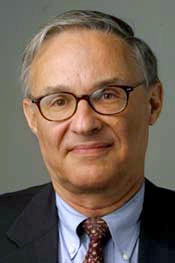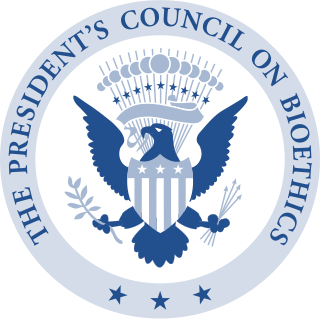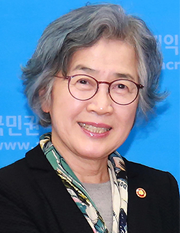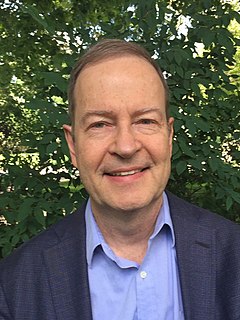Bioethics is the study of the ethical issues emerging from advances in biology, medicine and technologies. It proposes the discussion about moral discernment in society and it is often related to medical policy and practice, but also to broader questions as environment and well-being. Bioethics is concerned with the ethical questions that arise in the relationships among life sciences, biotechnology, medicine, politics, law, theology and philosophy. It includes the study of values relating to primary care, other branches of medicine, ethical education in science, animal, and environmental ethics.

Arthur L. Caplan, is the Drs. William F. and Virginia Connolly Mitty Professor of Bioethics at New York University Grossman School of Medicine and the founding director of the Division of Medical Ethics.

Leon Richard Kass is an American physician, scientist, educator, and public intellectual. Kass is best known as a proponent of liberal education via the "Great Books," as a critic of human cloning, life extension, euthanasia and embryo research, and for his tenure as chairman of the President's Council on Bioethics from 2001 to 2005. Although Kass is often referred to as a bioethicist, he eschews the term and refers to himself as "an old-fashioned humanist. A humanist is concerned broadly with all aspects of human life, not just the ethical."

The President's Council on Bioethics (PCBE) was a group of individuals appointed by United States President George W. Bush to advise his administration on bioethics. Established on November 28, 2001, by Executive Order 13237, the council was directed to "advise the President on bioethical issues that may emerge as a consequence of advances in biomedical science and technology". It succeeded and largely replaced the National Bioethics Advisory Commission, appointed by President Bill Clinton in 1996, which expired in 2001.

Directive 98/44/EC of the European Parliament and of the Council of 6 July 1998 on the legal protection of biotechnological inventions is a European Union directive in the field of patent law, made under the internal market provisions of the Treaty of Rome. It was intended to harmonise the laws of Member States regarding the patentability of biotechnological inventions, including plant varieties and human genes.

Solidarity is an awareness of shared interests, objectives, standards, and sympathies creating a psychological sense of unity of groups or classes. It supports class collaboration. It refers to the ties in a society that bind people together as one. The term is generally employed in sociology and the other social sciences as well as in philosophy and bioethics. It is also a significant concept in Catholic social teaching; therefore it is a core concept in Christian democratic political ideology.
The Council for Responsible Genetics (CRG) was a nonprofit NGO with a focus on biotechnology.
Gregory Stock is a biophysicist, best-selling author, biotech entrepreneur, and the former director of the Program on Medicine, Technology and Society at UCLA’s School of Medicine. His interests lie in the scientific and evolutionary as well as ethical, social and political implications of today's revolutions in the life sciences and in information technology and computers.
Linda MacDonald Glenn is an American bioethicist, healthcare educator, lecturer, consultant, and attorney-at-law. Her academic research encompasses the legal, ethical, and social impact of emerging and exponential technologies and "evolving notions of personhood".
The Institute on Biotechnology and the Human Future (IBHF) is an affiliate of the Illinois Institute of Technology (IIT) and is housed at IIT's Chicago-Kent College of Law. The IBHF was founded in 2004 by Lori Andrews, J.D., and Nigel M. de S. Cameron, Ph.D., to discuss and analyze the ethical, legal, and social implications of biotechnologies.
Nikolas Rose is a British sociologist and social theorist. He is Distinguished Honorary Professor in the College of Arts and Social Sciences at the Australian National University. From January 2012 to March 2021 he was Professor of Sociology in the Department of Global Health and Social Medicine at King's College London, having joined King's to found this new Department. He was the Co-Founder and Co-Director of King's ESRC Centre for Society and Mental Health. Previously he was the James Martin White Professor of Sociology at the London School of Economics, director and founder of LSE's BIOS Centre for the Study of Bioscience, Biomedicine, Biotechnology and Society from 2002 to 2011, and Head of the LSE Department of Sociology (2002–2006). He was previously Professor of Sociology at Goldsmiths, University of London, where he had been Head of the Department of Sociology, Pro-Warden for Research and Head of the Goldsmiths Centre for Urban and Community Research and Director of a major evaluation of urban regeneration in South East London.
Ethics or moral philosophy is a branch of philosophy that involves systematizing, defending, and recommending concepts of right and wrong conduct. The field of ethics, along with aesthetics, concern matters of value, and thus comprise the branch of philosophy called axiology.

Jonathan D. Moreno is an American philosopher and historian who specializes in the intersection of bioethics, culture, science, and national security, and has published seminal works on the history, sociology and politics of biology and medicine.

The Center for Biotechnology, Law and Ethics is a bioethics, biotechnology, and biotechnology law research center of Cumberland School of Law located on the Samford University campus in Birmingham, Alabama. It is one of the few research centers of its kind at a United States law school, and, in conjunction with the Cumberland Law Review, the Center publishes an annual journal of scholarly works, which circulates in the United States and foreign countries.
The Nuffield Council on Bioethics is a UK-based independent charitable body, which examines and reports on bioethical issues raised by new advances in biological and medical research. Established in 1991, the Council is funded by the Nuffield Foundation, the Medical Research Council and the Wellcome Trust. The Council has been described by the media as a 'leading ethics watchdog', which 'never shrinks from the unthinkable'.
Søren Holm is a prominent bioethicist and philosopher of medicine. He holds a chair in bioethics at the Centre for Social Ethics and Policy, part of the School of Law at the University of Manchester in Great Britain and the University of Oslo. He also serves as editor of the Journal of Medical Ethics. Holm holds a master's degree in health care ethics from the University of Manchester and two doctoral degrees in medical ethics from the University of Copenhagen. He was a member of the Nuffield Council on Bioethics from 2006 to 2012 and a member of the Council’s Working Party on Emerging biotechnologies.
Carlo Petrini is an Italian scientist and senior researcher at the Italian National Institute of Health, where he is head of the Bioethics Unit.
Bioconservatism is a stance of hesitancy and skepticism regarding radical technological advances, especially those that seek to modify or enhance the human condition. Bioconservatism is characterized by a belief that technological trends in today's society risk compromising human dignity, and by opposition to movements and technologies including transhumanism, human genetic modification, "strong" artificial intelligence, and the technological singularity. Many bioconservatives also oppose the use of technologies such as life extension and preimplantation genetic screening.

Pak Un-jong or Park Un-jong is a South Korean bioethics expert previously served as President Moon Jae-in's first chairperson of Anti-Corruption and Civil Rights Commission. She is the sixth person and second woman to lead the Commission ever since it was created in 2008.

John F. Kilner is a bioethicist who held the Franklin and Dorothy Forman ndowed chair in ethics and theology at Trinity International University, where he was also Professor of Bioethics and Contemporary Culture and Director of Bioethics Degree Programs. He is a Senior Fellow at The Center for Bioethics & Human Dignity (CBHD) in Deerfield, Illinois, where he served as Founding Director until Fall 2005.








